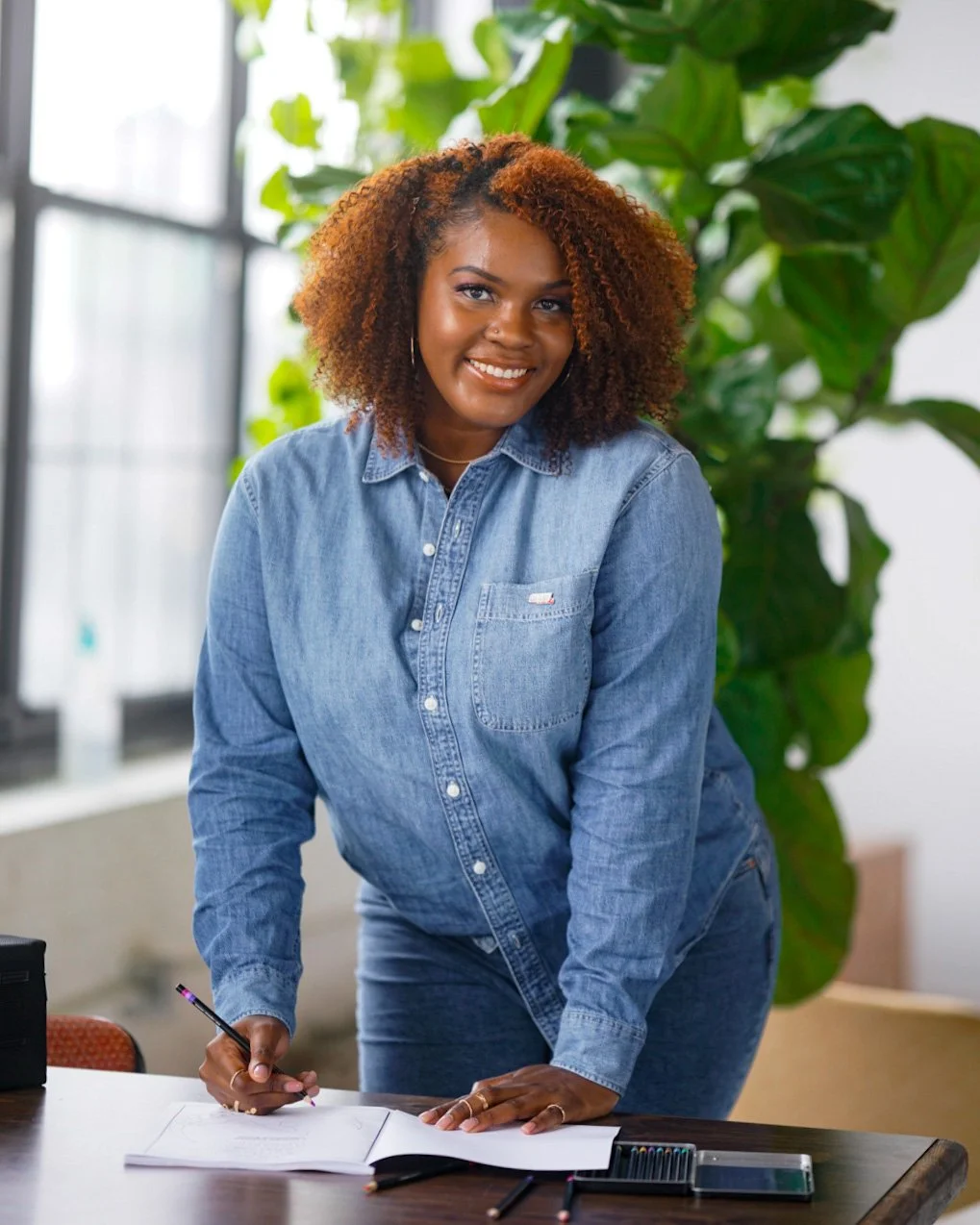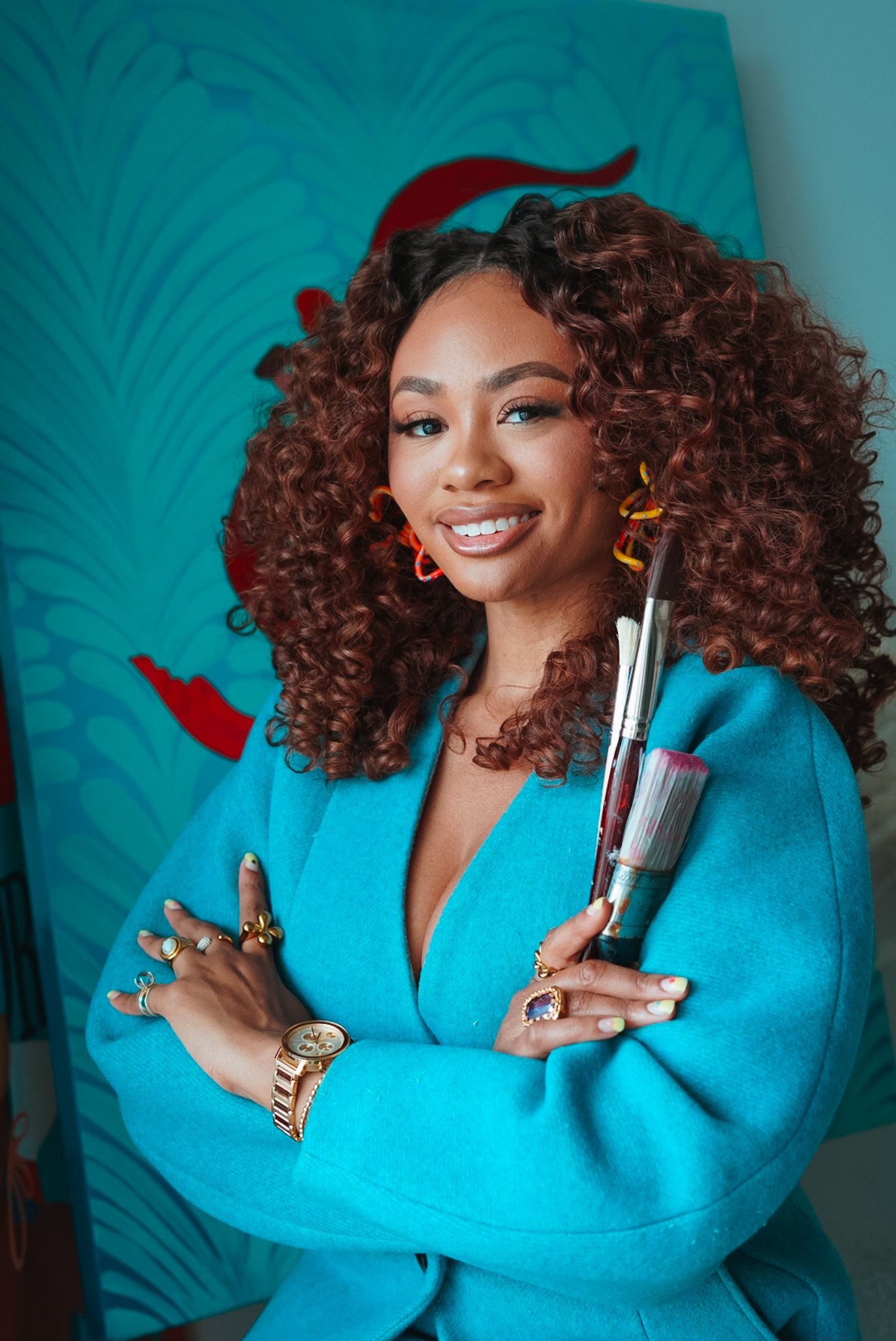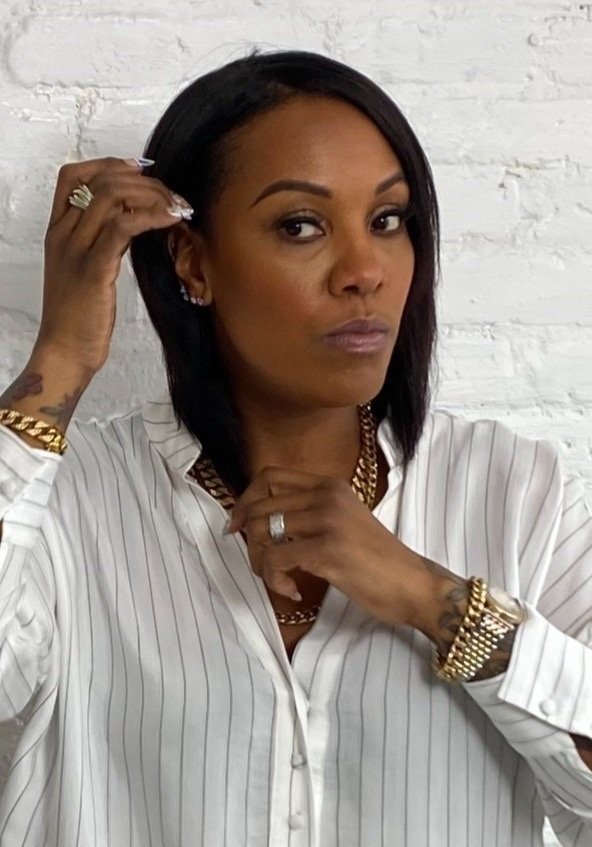MEET DR. NNEKA DENNIE
CBN: Hi ! We’d love to learn more about you, your story and what you are focused on professionally – whether it’s a business, nonprofit, artistic career etc. Please tell our readers about what you do, what you feel is most exciting or special about it, as well as anything else you’d like folks to know about your brand/art/etc. Be sure to include any important connections to your Caribbean identity and how it has influenced or shows up in your work.
Dr. Dennie: International education and community uplift have been the central pillars of my work as a history professor and the owner of an educational travel company. I teach classes that focus on Black people’s experiences in the US and the Caribbean, especially Black women’s. Some of those classes have been study abroad courses in Barbados where students have learned about slavery and colonialism. I also research Black women’s ideas and activism, which led me to publish a book titled Mary Ann Shadd Cary: Essential Writings of a Nineteenth-Century Black Radical Feminist. Shadd Cary was an abolitionist, suffragist, and the first Black woman newspaper editor in North America. I see teaching and writing as two strategies for helping people learn about global Black history, though those aren’t the only strategies that are effective for different kinds of learners. As such, I’m always looking for innovative ways to circulate knowledge about Black people. This goal inspired me to start my business. Diaspora Discoveries, LLC coordinates group trips to the Caribbean focused on Black history and culture. Travelers can immerse themselves in a tropical destination while enjoying direct access to local experts. One minute we’re attending lectures with brilliant scholars, and the next, we’re sailing and snorkeling on a private boat. We’re at a museum in the morning, lying on the beach in the afternoon, and having a waterfront dinner at night. I personally curate informative outings and social excursions to produce a one-of-a-kind experience that can’t be found anywhere else. I’m really excited to provide this kind of learning opportunity to people regardless of whether they had access to a college education or the ability to study abroad. My family is from St. Vincent and the Grenadines. As the child of immigrants and someone who was born and raised in the US, it’s really important to me to celebrate the connections between global Black experiences. I also want to help others see that there’s more to the Caribbean than partying and beaches—though those are fun too.
CBN: It’s wonderful to meet you! Thanks for that lovely insight. When being the only one with a seat at the table: how have you learned to be effective/successful even when you are the only one in the room that looks like you?
Dr. Dennie: I’m from a predominantly white, small military town in southern Maryland where, unfortunately, I was often the only Black student in my classes or extracurriculars. When I was lucky, I would be one of two! In retrospect, though, many of the people who I was closest to (and the only people who my parents would allow to show up at our house unannounced) were other Black, immigrant kids—one from Trinidad, one from Guyana, and one from Nigeria. In retrospect, I’ve realized that creating community in spaces where people like us were few and far between wasn’t just happenstance; it was a survival strategy. If we are the only one at the table, we have three key responsibilities. The first is to take care of ourselves so that we find spaces of joy and refuge, even when being “the only” grows challenging. Second, we need to advocate for ourselves and articulate what we need from the others at the table. We cannot swallow our tongues whenever we’re outnumbered. Rather, that is when it is most critical that we use our voices. And finally, we need to find a way to pull up other chairs. In the words of National Association of Colored Women co-founder Mary Church Terrell, we need to make sure we are “lifting as we climb” and offering support to others who are trying to get where we are. For me, that means working to open doors for other people in higher education who research or teach about Black women. In addition to being a professor and small business owner, I am the co-founder and president of the Black Women’s Studies Association (BWSA). BWSA is the only multidisciplinary association for scholars whose research centers Black women. We provide a broad range of resources to serve as an intellectual hub for faculty and students across different fields, whether that’s English, Political Science, or Public Health. Ultimately, our goal is to ensure that everyone doing research on Black women has the tools they need to be successful, even in spaces where they are underrepresented.
CBN: What role does data play in your marketing strategies? How do you gather and analyze data to refine your marketing efforts?
Dr. Dennie: Data helps me know my customers and my competitors. Three strategies have informed how I market Diaspora Discoveries. First, when I was still in the idea stage, I surveyed friends and family to gauge what price point they would be willing to pay for the scope of services that my business offers. While their responses varied widely, this was a useful practice because it helped me see that there were people willing to pay much more for my services than I originally planned to charge. I tracked the age, gender, and occupation of each respondent to identify my target audience. Second, after I launched my website, I built a mailing list that automatically redirected anyone who signed up to an online survey. Now that I had a specific group of people who confirmed their interest in Diaspora Discoveries, I wanted to learn more about them. 86% of mailing list subscribers chose to complete the survey, which offered me additional insights into demographic information, how many people they were interested in traveling with, and their previous travel experience. Third, I conducted extensive market research to understand what differentiated my business from similar companies. Diaspora Discoveries sits at the intersection of education and travel. Therefore, I carefully examined the packages, policies, and prices offered by large tour operators that focus on lifelong learning and market to universities. I also researched travel groups that market to individual Black travelers. Market research helped me find my niche. My business does not duplicate Black travel groups that emphasize luxury experiences or partying. It is also unlike large travel providers whose destinations may not include the Caribbean, or whose offerings to the Caribbean tend to emphasize leisure & sightseeing. Diaspora Discoveries prioritizes education in a tropical destination, and focuses on travelers who are interested in relaxing, exploring, and learning about Black people’s experiences in a medium-paced environment. Understanding where my business fits into the existing travel industry has been central to my marketing strategy.
“My family is from St. Vincent and the Grenadines. As the child of immigrants and someone who was born and raised in the US, it’s really important to me to celebrate the connections between global Black experiences. I also want to help others see that there’s more to the Caribbean than partying and beaches—though those are fun too.”
CBN: How do you approach networking and what strategies have been most effective in building valuable connections - both virtually and in person?
Dr. Dennie: Before I started my business, I booked a consultation with a boutique executive coaching firm called Young Black Femme in Charge (YBFIC). That call prompted a mindset shift to get me over the hurdle of feeling like I’m imposing on people by trying to network with them. The YBFIC founder, Maya Dennis, encouraged me to start expecting generosity from others and told me, “people want to help you.” Since then, I have repeated this phrase to myself as a pep talk whenever I get nervous about promoting the business or reaching out to others to ask for entrepreneurship advice. Taking a chance on networking has proven fruitful. I’ve done targeted outreach on Instagram to people whose accounts appear to be interested in Black/Caribbean history, literature, culture, or travel. This allowed me to make valuable connections with others who are genuinely excited about my business. Some people have been eager to help me advertise while expecting nothing in return—not money, not a repost, nothing. For example, I was invited to speak about Diaspora Discoveries on the Dis A Fi Mi history podcast and Spoken Black Girl (a writer and literary influencer) shared my business in her newsletter. I was also able to schedule a phone call with another Black travel company to ask for guidance as a new business owner operating in a similar space. YBFIC was right; people do, in fact, want to help me. In addition to applying that principle to in-person networking and reminding myself that closed mouths don’t get fed, I made the lock screen on my phone a QR code for the business website. In a practical sense, this eliminates a step for establishing contact with interested parties. Instead of telling someone to visit diaspora-discoveries.com, which they might forget or misspell, the code takes them straight to the website. This also helps to save time while I’m giving an elevator pitch to someone who only has time for a quick conversation.
We thank you Dr. Dennie for sharing your BOLD JOURNEY!
Contact/Follow: @blkgrlbrilliant (individual) and @diaspora_discoveries_ (business) | contact@diaspora-discoveries.com



















